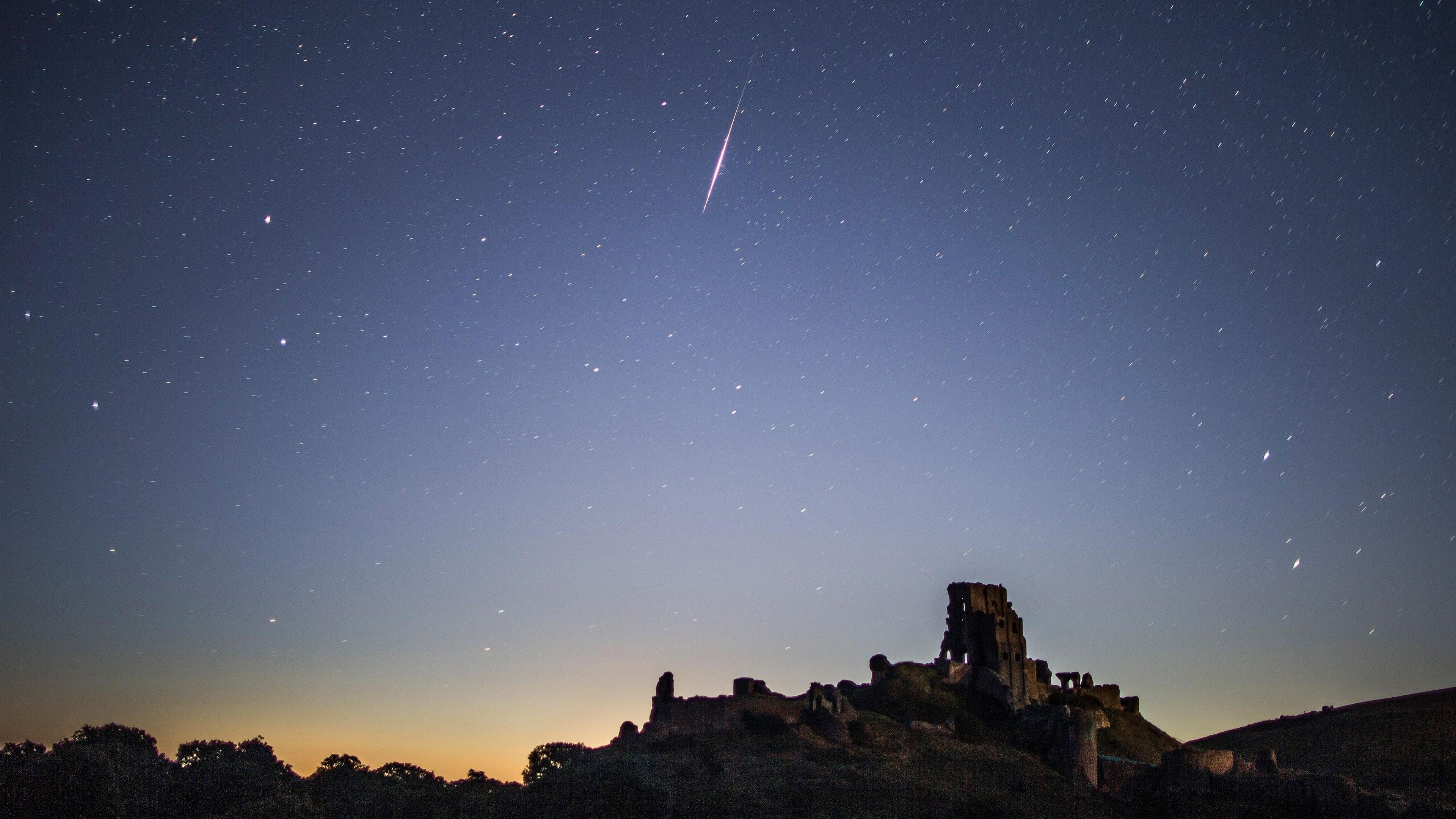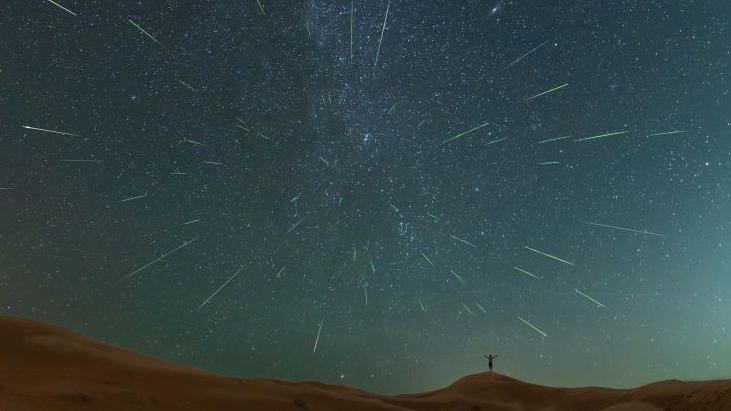Perseid meteor shower: When and how to watch

The Perseid meteor shower is visible in the north-eastern night sky
- Published
Parts of the UK will be treated to another celestial delight on Monday evening, as the Perseid meteor shower continues to streak the sky.
The spectacle began on Sunday night and is expected to continue into Tuesday morning.
The Perseids pass through our atmosphere every year when the Earth orbits through debris left by the Swift-Tuttle comet.
Experts say the best chance to spot a meteor begins just after midnight and ends about an hour before sunrise, but it is worth checking the weather where you are.
The Met Office said viewing conditions will be good with perhaps as many as 100 meteors every hour on Monday night into Tuesday.
A coronal mass ejection - eruptions of magnetic fields and solar storms - from the sun may also give an enhanced chance of seeing the Northern Lights in northern areas of the UK, the national weather service added.
Perseid meteor shower captured over Stonehenge
- Published12 August 2024
What is the Perseid meteor shower?
The Perseid meteors are visible all around the world and are so-called because they appear to originate from within the constellation Perseus.
While on most nights the shower will only showcase a few meteors each hour, the peak of the Perseids can bring many, many more.
If you're really lucky, you could see 100 or more meteors per hour, scientists say.
We see meteors when the Earth passes through trails of debris from comets or asteroids. As that debris hits our planet's atmosphere, it burns up and creates spectacular streaks of light.
The Perseids - pronounced 'Per-see-ids' - are caused by debris left behind by the Swift-Tuttle comet.
Dr Gregory Brown, Senior Public Astronomy Officer at the Royal Observatory in Greenwich, external, said that the Perseids is one of the fastest meteor showers.
"They travel up to 37 miles per second, but they are about the size of specks of paint or grains of sand falling into the atmosphere," he said.
"While that does cause this rather brilliant light show, they've absolutely no chance of hitting the ground. And even if they did, they’re these tiny little things so they wouldn't cause any harm."

Let your eyes adjust to the dark and try to get a wide view of the night sky.
How can I watch the Perseid meteor shower?
To find the Perseid meteor shower, it is best to look for the point in the sky where they appear to originate from, which is known as the radiant.
The Perseids' radiant is in the Perseus constellation, external. A stargazing app can help you find the exact location you should look towards, depending on your location in the UK.
But try to get to the darkest location you can with an wide, unobstructed view, as the meteors can appear in any section of the sky.
The darker it is where you are, the better chance you'll have of seeing meteors streaking across the sky - and give your eyes at least 30 minutes to adapt to the night.
“Fill your view with as much of the sky as you possibly can, lying down or using a deck chair and then just wait and allow your eyes to adapt to the dark and eventually, fingers crossed, if it's nice and clear and you're watching for an hour or so, you should at least be able to catch a handful," said Dr Brown.
Where in the UK is best to watch it?
Monday night going into the early hours of Tuesday is expected to have the clearest viewing conditions for most of the UK, BBC weather forecasters say.
BBC weather's Billy Payne said Tuesday night will see "good clear skies" in Scotland and Northern Ireland.
There may be some some rain and areas of cloud with "clear spells in between" in the south and east of England, he said.
"Parts of north and the west of England are likely to be stuck under a front, meaning limited viewing potential for many," he said.
Check the forecast in your area on BBC Weather here
Get in touch
Send your images and video of the shower to us here.